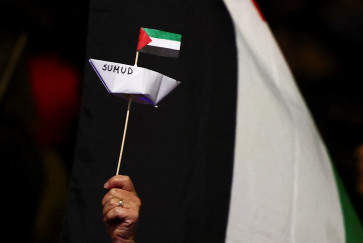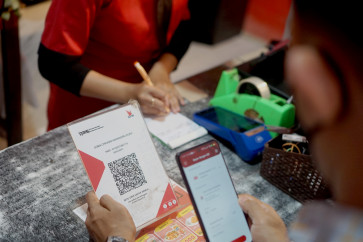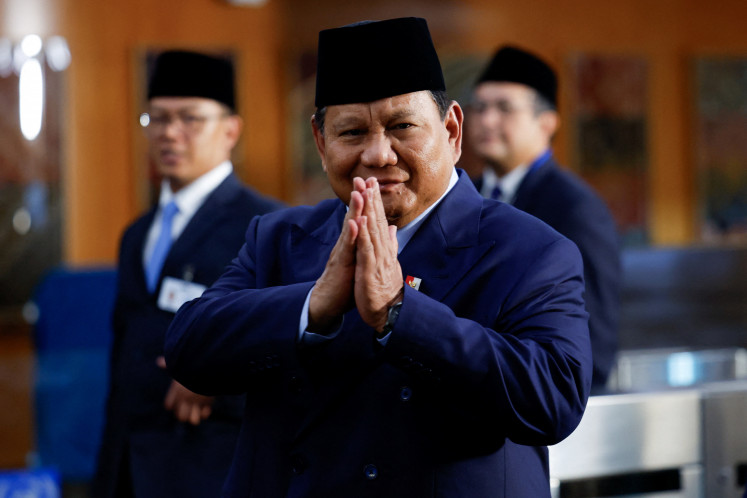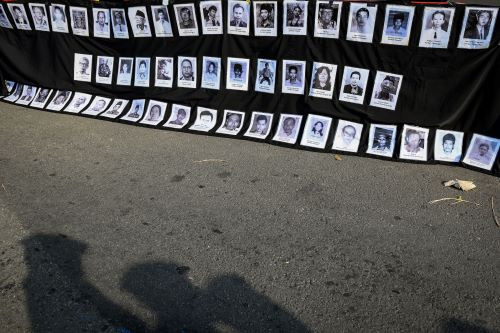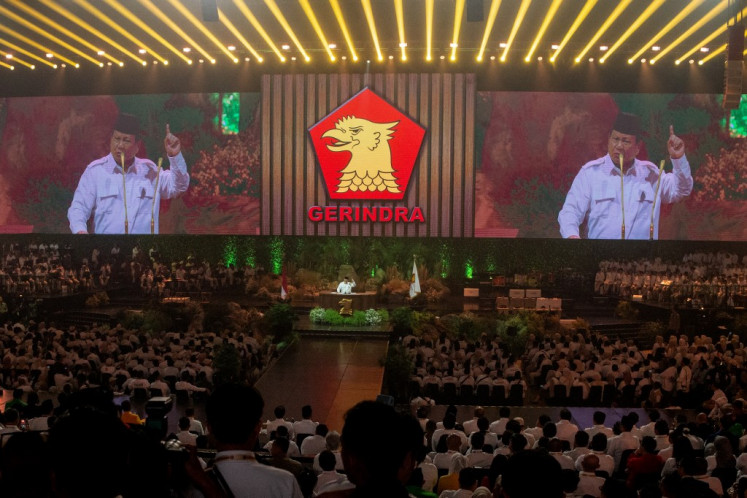Popular Reads
Top Results
Can't find what you're looking for?
View all search resultsPopular Reads
Top Results
Can't find what you're looking for?
View all search resultsRI introduces blue economy initiatives
Maritime Affairs and Fisheries Minister Sharif Cicip Sutardjo says that a concept called the “blue economy” should become the basis for future sustainable economic development
Change text size
Gift Premium Articles
to Anyone
M
aritime Affairs and Fisheries Minister Sharif Cicip Sutardjo says that a concept called the “blue economy” should become the basis for future sustainable economic development.
“Blue economy is an integral part of the green economy,” Cicip said in an official statement sent via email from the Rio+20 meeting in Rio de Janeiro, Brazil.
The concept of the blue economy, according to Cicip, revolves around the development of costal and seaside areas.
A study conducted by the Maritime Affairs and Fisheries Ministry shows that Indonesia, as the largest oceanic state in the world, has put a lot of effort into developing the land-based economy but has not yet fully optimized its large maritime economic potential to support sustainable development and to mitigate the impact of climate change.
The study estimates that Indonesia’s oceanic economic potential could reach US$1.2 trillion per year or ten times the 2012 state budget.
The study concludes that if Indonesia could fully optimize its maritime potential, its waters could mitigate the impacts of climate change by absorbing around 80 percent of global over-heating and at the same time provide a source of alternative energy.
Therefore, Cicip said, Indonesia had officially proposed the blue economy concept in the Rio+20 international forum to push for a global awareness on the economic potential of sea and costal areas. The Rio+20 international forum on sustainable economic development is a gathering of officials, environmentalists and organizations representing 192 states.
“Indonesia, due to its vast oceanic area, is an ideal place to implement this blue economy concept. If we can properly manage our natural resources using the blue economy concept, then the Indonesian economy can be expected to grow further in the future,” Cicip said.
“For a country like Indonesia, implementing green economy alone is not enough. We must also utilize our oceanic potential using the blue economy concept,” he added.
Cicip added that the Maritime Affairs and Fisheries Ministry would develop real world programs so that the blue economy concept could be practically implemented.
The ministry had actually taken several initiatives to start implementing the blue economy concept at the regional level, according to Cicip.
One of the initiatives is the Coral Triangle Initiative (CTI), in which Indonesia, Malaysia, the Philippines, Timor Leste, Papua New Guinea and the Solomon Islands work together to manage the coral ecosystem in their respective regions.
The CTI was launched in 2009 and consists of five action plans — to strengthen the management of processed sea-based products, to promote eco-friendly approaches in fishery processing, to protect the sea, to improve seaside rural communities’ resiliency in dealing with climate change and to protect rare species in the sea.



